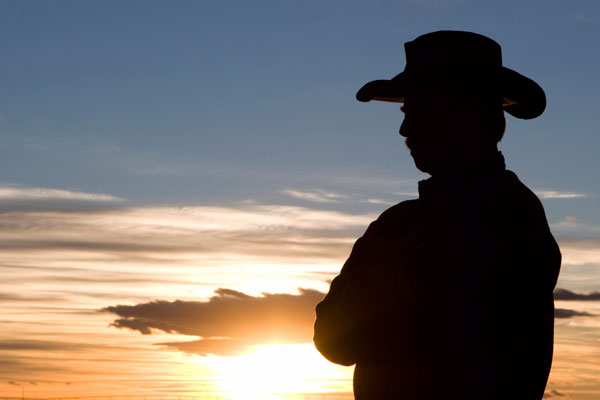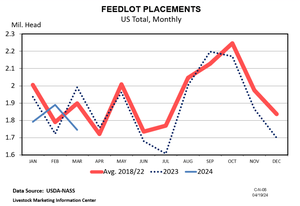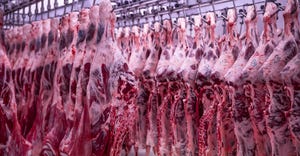There’s a new type of environmentalist emerging, and that’s good news for beef producers.
November 10, 2016

One of the more interesting aspects of my career has been my experience working with environmentalists on beef sustainability issues. That has provided me an under-the-hood look at how the environmental community operates, and more specifically, what and how they think about the beef industry.
After a career path that took me on a tour of the beef industry by working in jobs that gave me experience in nearly every aspect of beef production—I’ve done everything from cowboying, to managing a university beef research farm, to working for one of the world’s largest beef processors, to working at CattleFax, and serving as a director for what was at the time the largest natural and organic beef company—my career took an unexpected turn when I joined World Wildlife as the director of livestock, where I was responsible to work across the environmental and beef industry to collaboratively find ways to increase the sustainability of beef production.
This job took me around the world as I worked with stakeholders across the beef value chain to find ways to build collaboration, and find ways to work together to contribute to a more environmentally friendly, socially responsible and financially viable beef industry. It was interesting to see firsthand how beef is produced not only in the U.S. where I know the industry inside out, but also to learn how beef is produced in places like Australia, Brazil, Canada, Chile, China, Argentina, Africa, and Europe.
Although every beef production system is different, and has its own unique challenges, it is amazing how similar many aspects of production are across continents and in places half way around the world. For example, I’ve been on beef farms in Germany, which if you didn’t know any better, you’d think were in the Midwest of the United States. I’ve also been on ranches in Brazil that are dealing with very similar issues that I’ve seen on ranches in Florida.
It was also fascinating to talk to farmers in the UK and Holland about issues and the use of technology in their confinement systems that feedlots here in the U.S. are also working on. This is especially interesting because Europe has been a particularly outspoken critic of the U.S. beef production system that relies on feedlots.
The truth is the Europe beef production system depends every bit as much on a confinement system to produce its beef as the U.S. does. It’s simply at a different scale, since they don’t have 10,000 head feedlots in Europe. They instead have a system in which nearly every farm confines all its cattle for a portion of the year during the winter in order to more efficiently feed harvested feedstuffs.
One particularly interesting aspect of my experience working in the area of beef sustainability has been my engagement with environmental organizations. When attending a multi-stakeholder beef sustainability event, it’s easy to tell who the environmentalists are and who the beef producers are.
Environmentalists usually fall into one of two categories; either they’re wearing cowboy boots that look like they’ve just been pulled out of the back of their closet for the first time in a long time, which means the boots are neither fit for a day of work on the ranch or to be worn to church, or the environmentalist are dressed like they’re ready for an African safari.
However, there is starting to be a newer, third type of environmentalist, which is an interesting category. These are the environmentalists who have a true understanding of the beef industry, either because they came from the beef industry or because they’ve spent significant time working with the industry. They deeply understand the issues and why the industry does certain things a certain way. More importantly, they know where and why changes can and should be made. They’re also the ones the beef industry can, are, and should work with.
Sustainability has become a buzzword in the beef industry, and although the attention on the issue of sustainability is good, it has left many in the industry either wondering what to make of the attention on sustainability and what it all means, or they’re left confused about who to trust and who they should work with to become more sustainable.
My experience indicates there will be many more programs and processes will be developed in the name of beef sustainability. And marketing plans in particular will be developed to take advantage of the increased focus on sustainability.
My advice to the beef producer trying to find their way on the issue of sustainability is that if a program, process, marketing plan, environmental group or anyone or anything else comes along wanting to work with you on sustainability, and they don’t have a balanced “triple bottom-line” approach, meaning as much emphasis is given to the day-in and day-out ranch level financial viability as is given to environmental issues, or to the contribution of ranching families and ranching communities to society, then those programs won’t last and precious resources should be spent elsewhere.
Bottom line: a focus on ranching for profit, which concentrates on grazing management and sound business practices, is a key place for a ranching operation to spend valuable time and resources. Once those two areas (grazing and business management) are properly addressed, a level of wisdom will be achieved that will allow a producer to properly and thoroughly assess other sustainability opportunities.
But until a ranching operation has developed a strong foundation of grazing and financial management, it won’t be in a position to adequately take advantage of sustainability opportunities.
Bryan Weech is a consultant and adviser on sustainable agricultural projects. Contact him at [email protected].
You May Also Like



